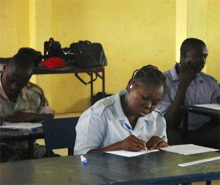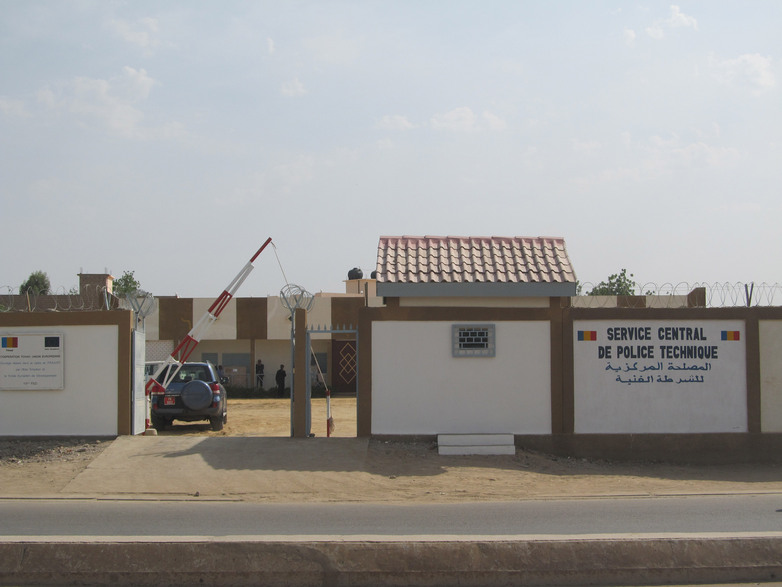Police Programme Africa – Chad
Project description
Title: Police programme Africa – supporting police reform processes in Chad
Commissioned by: German Federal Foreign Office (AA)
Country: Chad
Lead executing agency: Police Nationale Tchadienne (PNT)
Overall term: 2013 to 2018

Context
After decades of armed conflict and civil war, the political situation in Chad has been stable since 2010. However, the security situation remains tense as a result of instability in a number of neighbouring countries and Chad’s socioeconomic problems. Civil wars in Libya, Sudan and the Central African Republic have led to a steady flow of refugees with their herds of cattle, which is giving rise to an increase in disputes over resources. The Nigeria-based Islamist terror group Boko Haram also poses a major threat to the country’s political stability and socioeconomic development.
The police in Chad are very limited in their ability to fulfil their public security responsibilities. They lack the institutional and HR capacities to respond appropriately to the current security challenges. The police force is poorly equipped and lacks adequate training. In rural areas in particular, it has little if any presence. Work has started on implementing a national reform plan for the security sector agreed on an inter-ministerial basis and supported by the EU.
Efforts to decentralise the criminal investigations department have only just begun. As a result, it has so far been almost impossible to fight cross-border crime. The criminal investigations department and the border police are still insufficiently prepared to tackle the challenge of reducing cross-border crime and ensuring public security in line with international standards.
Objective
The capacity of Chad’s police force to secure the border and combat crime is strengthened in selected border regions.
Approach
Since 2009, GIZ has been implementing a programme on behalf of the German Federal Foreign Office to support police reform processes in Africa. In its current phase, the Police Programme Africa is working with selected national and regional police institutions, an immigration authority, the AU and regional organisations in order to improve internal management processes and basic training. The programme is also enhancing specialist and technical knowledge in specific areas such as forensics in order to tackle transnational organised crime and strengthen border security. In addition, it is helping to increase the regional coordination of police services.
In the current phase of the programme, cooperation among Chad’s border authorities and with authorities in neighbouring countries is being promoted in order to reduce cross-border crime. Training is also being carried out on national regulations and international standards in the area of border control procedures.
The programme also focuses on reducing cross-border crime in rural regions by increasing the police presence. To this end, support is being provided for the construction of police stations and the training of police officers and their secondment to the regions.
Efforts are being undertaken to improve the fleet management activities of Chad’s police force in order to ensure its mobility. The programme is also promoting training for motorcycle mechanics and advising the police force on personnel, resource and financial management topics.
Results
The services provided by Chad’s police force in the area of managing entry to and exit from the country have been improved, and the work of the criminal investigations and logistics departments has been professionalised. The construction of a border checkpoint has allowed the police to more effectively control the import and export of goods and the movement of people and cattle across the border. Training courses and the procurement of materials in the field of forensics have allowed the criminal investigations department to expand its services in rural regions in particular. The construction of a vehicle repair workshop and the provision of training for mechanics and administrators are increasing police mobility.
